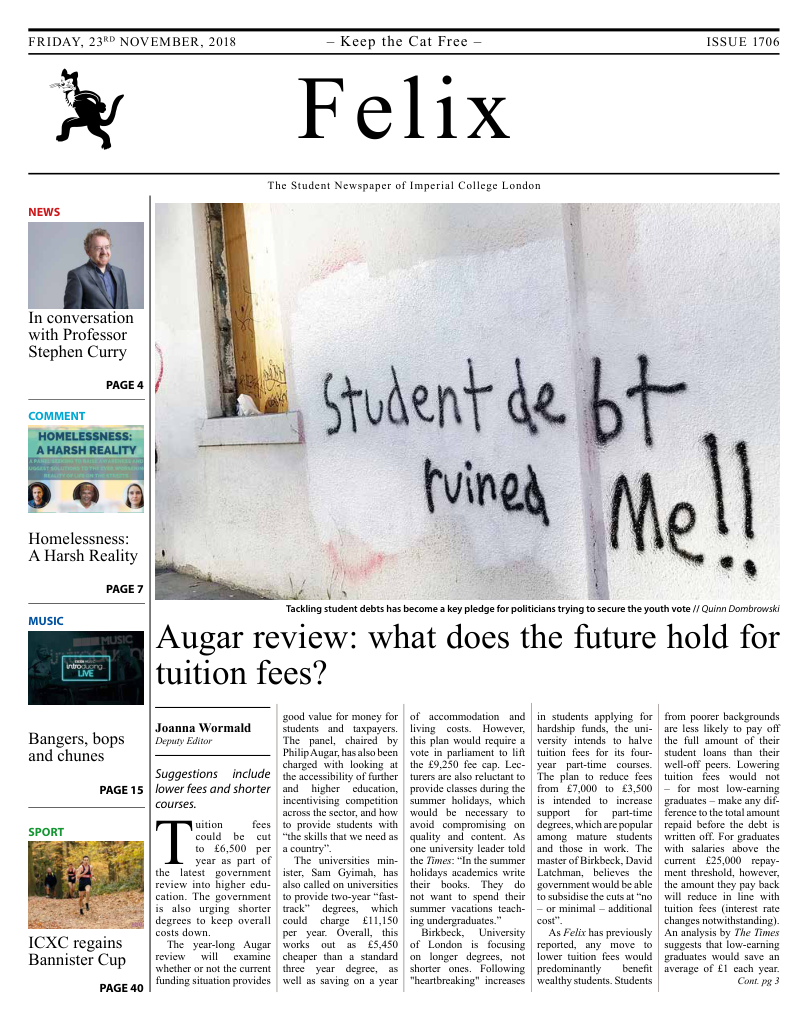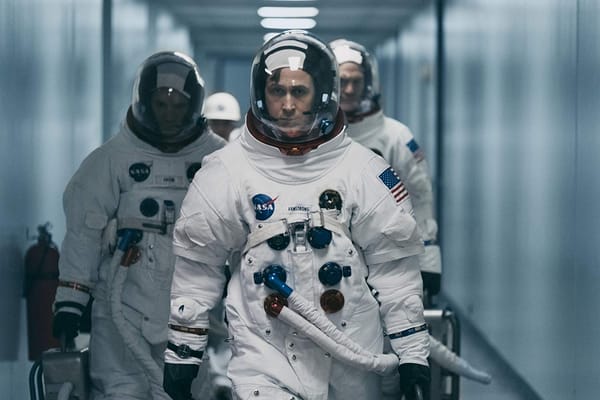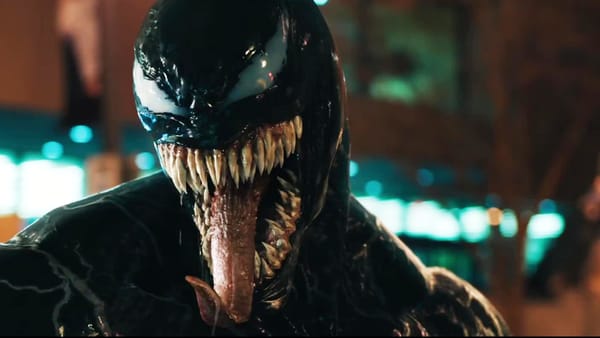Fantastic Beasts: The Crimes of Bad Storytelling
Film Editor Aidan Chan sat through the latest film in the Harry Potter franchise.

I walked into the cinema with mild apprehension. I knew that the critical reception was particularly unfavorable, yet I had hoped that this would be a Pirates of the Caribbean: Dead Man’s Chest scenario, where the film would still be immensely fun to watch. After two hours of sitting and hoping for the best, I came out of the cinema, defeated. Fantastic Beasts: The Crimes of Grindelwald (Fantastic Beasts 2), is a complete mess of a film. The Harry Potter franchise has finally lived long enough to see itself become the villain.
Fantastic Beasts 2 is directed by David Yates, and stars an ensemble cast of Eddie Redmayne, Katherine Waterston, Zoë Kravitz, Johnny Depp and many, many more. However, the bomb that destroys the film is J. K. Rowling’s horrid screenplay. It is actually quite magical that a film can be so boring with around ten separate subplots progressing simultaneously on screen (I am not exaggerating; you can count them if you want). It is like watching Game of Thrones, but instead of ten hour seasons, you get a two hour film; And instead of interesting, nuanced plotting, you get stories that go absolutely nowhere and are completely pointless.
The more separate plots a film has, the less time each plot gets. And in a film like Fantastic Beasts 2, each storyline is assigned roughly 12 to 13 minutes of screen-time. And so, instead of self-contained and fully-realised stories and character arcs, we get ten half-baked and lukewarm plots ranging from soapy melodrama, to misunderstandings that are more suitable in a 90s sitcom— each of which fails to allow any emotional attachment. At the end, I did not care about any of the characters or their struggles. Any tension presented felt manufactured, underdeveloped and inconsequential because the film had to rush off elsewhere to cater to another subplot. I did not care about Newt and Tina’s forced romance, or Credence’s quest to find his origin. Even when Hedwig’s Theme blasted through the cinema speakers and the iconic Hogwarts castle appeared in the distance, I did not find an ounce of excitement within me, because I was so exhausted by the film.
Plot twists are one of the defining aspects of the Harry Potter series, and Rowling migrated this tradition to the Fantastic Beasts franchise. The “Credence is the Obscurial” twist is understandable in the first film. But in this one, the plot twists are verging on absurdity. I have heard many people praise the final twist of the film on social media, so I was relatively excited about whatever surprise that might be. However, that twist proves to be one of the most laughable and ridiculous moments of the entire film. These reveals worked in the Harry Potter films because there are carefully placed breadcrumbs that hint towards the twist. However, the twist in Crimes of Grindelwald are unearned and I have never rolled my eyes harder.
With the departure of any coherent story structure, the nostalgic magic that is consistently present in the Harry Potter series also evaporated completely. The necessity of saying spells out loud continues to be entirely arbitrary. The whimsy and innovations of the previous instalments are gone, instead we get more secret elevators, more moving statues, more passageways disguised as walls, more random spells that do things Muggles can do equally well (like strapping people into a chair) - basically nothing we have not seen before (the only novelty is a magical dust hologram PowerPoint thingy I guess). When a magic-denying Marvel flick felt more magical than a franchise built upon Harry Potter, you know something has gone wrong.
The actors might be the only redeeming factor of this film. They tried their best to make use of the very little screen-time they were assigned. Ezra Miller had moments of brilliance, Johnny Depp dominated each frame he was in and Jude Law is charismatic as a compassionate Albus Dumbledore. The moments that hint at the complicated relationship between Dumbledore and Grindelwald are genuinely affecting, but the flashes of sincerity are quickly replaced by more poorly presented stories. Other aspects of the film, including generic CGI battles, uninspired direction and abrupt tonal shifts (far too often does the film randomly cut from a comedic moment to Grindelwald ominously declaring his evil plans) do nothing to save this film from being part of the “unnecessary sequel” gang.
The credits rolled and I looked at the list of talents involved in the film. From producer David Heyman (who produced many great films) to Steve Kloves (who penned all but one the screenplays for the original Harry Potter films), I find it rather strange that no one told Rowling that her screenplay was potentially problematic. Either that, or she just did not care. In a film without beasts or crimes, Fantastic Beasts: The Crimes of Grindelwald is the quintessential filler episode. It is time for Rowling to let go of her ego and hire a real screenwriter to polish and untangle her unintelligible storylines, so that this franchise can reach the potential it is capable of.
-2 stars









